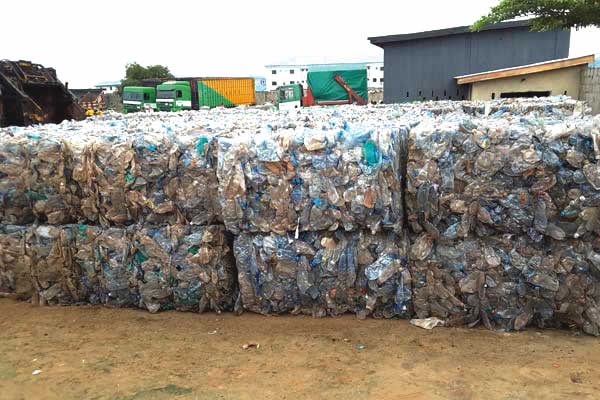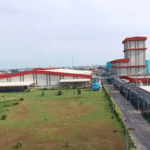By Merit Ibe
Amid mounting efforts to combat plastic pollution, Nigeria’s proposed ban on single-use plastics (SUPs) has stirred concern among stakeholders, who point to inadequate infrastructure, economic strain and low public awareness as major obstacles.
These challenges, they say, highlight the urgent need for targeted incentives, behavioural change strategies and increased investment in recycling hubs.
Rather than a blanket ban, stakeholders are advocating for a more balanced and industry-sensitive approach; one that prioritises the development of recycling and circular economy sectors.
Many question whether the existing infrastructure can realistically support the transition, warning that without the right systems in place, the ban may outpace the country’s capacity to adapt.
Experts view that the vast majority of African plastic manufacturers, particularly small and medium enterprises (SMEs), are ill-prepared for an abrupt transition, as many of these businesses rely heavily on plastic production and packaging, employing tens of thousands of workers and serving essential sectors such as food, pharmaceuticals and consumer goods.
Following the government’s commitment to tackle climate change, biodiversity loss and plastic pollution, which have become menacing challenges in the country, the federal government, last year, announced the ban on SUPs in ministries, departments and agencies of government.
The Minister of State for Environment, Mr Iziaq Salako, who announced the ban stated that the National Policy on Plastic Waste Management, which was adopted in 2020, envisages that by January 2025, some categories of plastics, most of which are single-use, would be banned in Nigeria.
Following the ban, Lagos State said it would commence enforcement on July 1, 2025.
As Nigeria moves closer to implementing the ban on single-use plastics (SUPs), critics warn that the absence of viable and affordable alternatives is creating deep uncertainty across the manufacturing value chain. Many fear that the policy, though well-intentioned, could disrupt production processes and strain already fragile industrial systems.
While expressing support for efforts to curb plastic pollution, Mansur Ahmed, Interim President of the Pan African Manufacturers Association (PAMA), cautioned that the continent must not jeopardize its industrial prospects in the process.
“The fight must not sacrifice Africa’s fragile manufacturing future,” Ahmed said. “The continent needs a strategy that balances environmental protection with industrial growth, ensuring that one problem is not solved only to create another.”
Advocating for a more sustainable and economically inclusive approach, Ahmed emphasized the importance of investing in recycling and circular manufacturing industries rather than imposing outright bans.
“Africa must treat plastic waste not just as an environmental hazard but as a resource that can fuel new industries, jobs, and income streams for businesses, governments, and households,” he added.
Ahmed viewed that environmental protection, industrial growth and development are not mutually exclusive.
“With the right policy mix, Africa can lead a green industrial revolution. PAMA stands ready to partner with governments, AfCFTA, and stakeholders to ensure SUP ban protects the environment, creates jobs, and positions African manufacturers as global leaders in a circular economy.”
The association noted that a just transition rooted in circular economy principles, anchored on regional recycling hubs, incentivised R&D, and extended producer responsibility, will offer a more technically sound and inclusive pathway to a green economy and clean environment.
Mansur called for balance, not backlash, urging policymakers to pause and recalibrate.
He noted that environmental goals must not come at the expense of industrial survival.
“Africa is still in the early stages of industrialisation, with less than 10 per cent of its workforce engaged in manufacturing. Its share of global manufacturing output remains under 2 per cent (African Futures With AUDA-NEPAD, 2025).
“PAMA therefore calls for the development of regional recycling hubs, supported by enabling policies, private investment, and technology partnerships.
“Creation of viable markets for recycled plastics, through procurement standards, quality certification, and extended producer responsibility (EPR) schemes to foster innovation while keeping plastic in the value chain longer is needful.
“This approach encourages environmental sustainability without killing the industry. Industries like WeCyclers in Nigeria, EcoPost and Gjenge Makers in Kenya, have shown how plastic recycling can generate jobs, protect the environment, and build new economic sectors.
Recycling is not just environmentalism, it is industrial policy, job creation, and regional integration rolled into one.”
The association lamented that Africa’s accelerating plastic ban policies have introduced a new layer of complexity.
While environmental sustainability is non-negotiable, Ahmed said the current pace and design of SUP bans raises significant concerns for local industrial resilience.
“Regulatory asymmetry, cost-prohibitive alternatives, and the absence of viable transition frameworks risk undermining job-creating value chains.”
PAMA therefore called for a rebalancing of Africa’s industrial policy architecture, one that integrates environmental mandates, trade protocols, and manufacturing realities through a continental industrial compact.
“Such a compact must prioritise SME integration, strategic incentives, and infrastructure upgrades, while leveraging the AfCFTA as a platform for industrial policy harmonisation.”
PAMA views that while the environmental rationale behind the policy is legitimate, the association is concerned about the speed, scope, and industrial implications of the current plastic ban trend in Africa. Ahmed cited the case of Nigeria, where styrofoam producers and packaging companies now face a regulatory cliff, with no clear transition strategy or incentive framework.
“This could result in factory closures, job losses, and capital flight, further weakening the continent’s already underdeveloped manufacturing base. In Kenya, the 2017 ban forced dozens of local plastic bag producers out of business almost overnight, with little compensation or retraining support.
“Though the country has made some progress in developing alternatives, most substitutes are imported, which undermines local value addition and increases dependency.
It is also paramount to note that biodegradable alternatives remain prohibitively expensive for many African manufacturers, most of whom operate in resource-constrained environments with high energy costs, limited access to finance, and poor infrastructure. For food producers in particular, switching packaging materials risks reducing shelf life, raising prices, and threatening food security.
“Furthermore, regulatory inconsistencies and weak enforcement across borders complicate matters. While some African countries have enacted strict bans, others have not, creating a patchwork of rules that confuse manufacturers, traders, and logistics operators alike. Without harmonisation under frameworks like the AfCFTA, these fragmented policies could discourage cross-border industrial investment and disrupt regional supply chains.”
The association further called for the alignment of plastic regulation at the continental level to reduce trade friction and promote a shared vision of green industrial transformation.
“AfCFTA secretariat should establish a continental digital platform for mapping and linking recycling firms, plastic collectors, and manufacturing off-takers.”
Going forward, the association recommended Gradual phase-outs; Incentivised alternatives; Stakeholder engagement; Capacity building and skills training among others.
For the President, Calabar Chamber of Commerce and Industry (CALCCIMA), David Etim, SUPs have been a global menace for some time.
To him, if Nigeria is banning the use of SUPs, then what is the replacement.
He doubted if the government had the infrastructure on ground to support the ban, calling for a gradual process.
“For now, I don’t think there’s any structure in the country to support the technological migration to recyclables from single-use plastic.
“So, in my honest opinion I don’t think Nigeria is ready for the ban.
“Migration should be a gradual process it’s not something that you can just dabble into suddenly.
“Several countries have been trying to transition from SUPs for years now, the world has become dependent on SUPs over many many years. It will take time, not just a sudden change.”
He was of the view that transitioning is a whole complex issue, which is not easy to implement.
“I really don’t know how they’re going to go about it. It’s one thing to pass the law but the implementation is another.
“This will involve the change of machinery, raw material inputs. It’s a complete scientific reorientation.
“In my opinion I don’t know whether we are just grandstanding as opposed to actually looking for a real solution because it’s a complex
problem. Much more technologically advanced countries have not finished that transition.”
Etim noted that transition should take about 10-15 years, with science and technology working closely with the industry.
“Today in Nigeria there’s a total disconnect between science, technology and the industry. There’s no relationship, it’s
not an understatement. There’s a lot that needs to be done before we bring about such laws, if we really want to transition our economy from SUPs.”
The biodegradable paper we are opting for cannot work with the problem of deforestation in this country because paper comes from trees, so there are several complexities that we need to overcome.
There are several components that must work together which are currently not in place, so because they are not working together, even seeing the way forward now becomes a challenge.”
If you are moving away from SUPs, machinery will change or be modified and that is a huge investment.
“The machinery for recycling is a huge investment, now the recycling industry is fledgling in Nigeria.
For the volume of waste that is being generated by over 200 million people on a daily basis is phenomenal.
“So, there’s a huge requirement in upscaling capacity to be able to catch up. The industry has been built over years using single use plastic as the primary raw material input
“With the ban, all of that has to change , which will not be easy for the operators on that line.
The investment in remodeling or redefining the manufacturing process to suit this new approach is huge, which needs to be looked at holistically.
“It will involve stakeholders engagement which is critical.
There must be capital set to support the transition in form of SUP tax, whereby over time the government builds up a pool of funds which should not be abused but channeled in the SUPs to support the restructuring of the industry in the area because of the environmental challenges caused by SUPs.
“The funds should be directed to the industry to restructure and reposition the industry in the course of the transitioning from single-use plastics; that’s how it is done everywhere.”
The President, Association of Scraps and Waste Pickers of Lagos ASWOL, Friday Oki, called for a phased ban of Single Use Plastics (SUPs) instead of a blanket ban.
He said there should be at least three years’ notice to dealers and producers of SUPs to transit to other businesses in order not to create unnecessary unemployment.
He noted that the ban, if implemented, would impact the economy of the dealers and producers.
Oku observed that the government failed to conduct sufficient public awareness and education before moving forward with the proposed ban on single-use plastics (SUPs).
Similarly, several dealers and manufacturers of SUPs criticized the planned July 1 implementation date, describing the move as ill-timed and insensitive, especially given the current economic difficulties facing businesses and consumers alike.

















Leave a comment